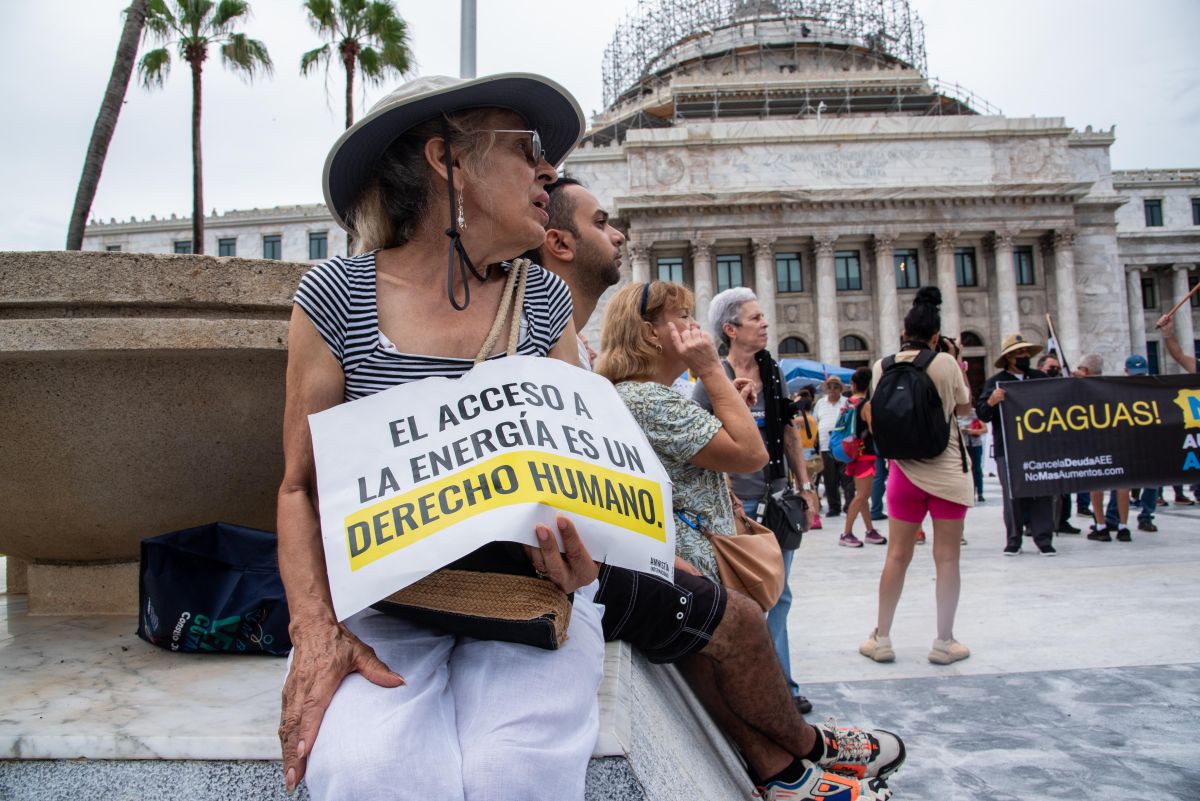NEW YORK – Nydia Velázquez and Bob Menéndez, Democrats in the US House and Senate, respectively, presented a joint resolution calling for a Debt Adjustment Plan for the Electric Power Authority (PREPA) that is fair and sustainable and that does not imply increases in the electricity rate for Puerto Ricans.
“The proposals of the Board (FOMB) to restructure PREPA’s debt could increase the cost of electricity in Puerto Rico by up to 13%. PR people just can’t face this. @SenatorMenendez and I introduce a resolution to request a debt restructuring plan for PREPA that is fair and sustainable,” read the tweet shared by the New York representative of Puerto Rican origin on Thursday.
“The reconstruction and sustainability of the electrical grid is critical to the economic future of the island. For too long, residents and small businesses have suffered the combined brunt of some of the highest energy costs in the nation with the lowest reliability. Since before the approval of the PROMESA law, I have been raising my concerns about how the restructuring process will put the people of Puerto Rico at a disadvantage for generations. Unfortunately, the initial restructuring plan for the Puerto Rico Electric Power Authority is completely inadequate and sets the island on an unsustainable path that will affect its people and impede economic development by further increasing the cost of electricity,” he stated. Menéndez, who represents New Jersey in the federal Congress.
PREPA, operated by the foreign consortium Luma Energy since the summer of 2021 under the promise of improving service and expediting the reconstruction of the network and the promotion of clean energy, carries a debt that amounts to $8,000 million.
At the moment, the Fiscal Control Board, a federal entity that has been managing the territory’s finances since 2016 as a result of the approval of the PROMESA Law, is in the process of establishing how much the bondholders will be paid.
The New York federal judge who is leading the debt restructuring processes, Laura Taylor Swain, determined that the value of the PREPA bondholders’ claim amounts to $2,388 million and not $8,500 million, which is what the creditors demand. Part of the blockade is related to the payment of pensions to retired employees of the corporation.
The Pierluisi Administration has indicated that an increase in the electricity bill would be necessary to cover the pension system. However, the determination on this matter has not yet been made.
“The Board will amend the Plan of Adjustment to restructure more than 10,000 million dollars of debt and other claims against PREPA before the pension claims. It will make it possible to issue counterparties for an approximate value of 2.5 billion dollars to creditors. Given the updated projections, this reduction of the Adjustment Plan currently presented is necessary so that PREPA can supply essential electricity to the people and businesses of Puerto Rico at sustainable rates. The Board has not yet determined the revised charge to pay PREPA’s inherited debt,” read the Board’s Fiscal Plan Certification document for PREPA released on June 23.
If the plan is approved as it is, experts estimate that some 12,000 small businesses would close due to not being able to meet the increases in the electric bill and a loss of 25,000 jobs in 2024.
The Board has until July 14 to submit PREPA’s third Plan of Adjustment and the justifications for a new charge on the bill.
The congressmen’s resolution calls for an amended plan that is workable for island residents.
A multi-stakeholder board of 50 organizations that includes representatives from the business, energy, environmental and financial sectors supported the Democrats’ request.
The coalition made up of representatives of entities such as the Citizen Commission for the Comprehensive Audit of Public Credit, the Sierra Club, the Center for Popular Democracy and the Puerto Rico Chamber of Commerce, among others, stated that any restructuring plan must establish at least the resources to make the electricity grid resilient including the rapid transition to renewable energy sources.
“Any future restructuring plan must include, at a minimum: necessary capital and operational resources to achieve a stable, reliable, and resilient electrical system that includes a rapid transition from fossil fuels and citizen participation in that transformation; efficient use of available federal funds; and a sufficient reduction in debt levels to achieve affordable and competitive costs below 20 cents kilowatt hour (kwh),” the coalition stated.
The plan to restructure PREPA’s debt currently proposes three new tariff charges for the next 30 years.
The legislative move in Congress comes amid protests on the island against the plan for PREPA.
This Wednesday, thousands of Puerto Ricans summoned by religious, commercial and community organizations marched from the Capitol to La Fortaleza (the governor’s residence) in San Juan against more increases in the electricity bill.
For its part, the Legislative Assembly approved this Thursday, after the deadline, the budget for the next fiscal year that will go to the governor’s signature and then to the evaluation of the Board.
At about 5 pm, the final version of the general fund budget for fiscal year 2023-2024 was approved by the Legislature.
The legislation prioritizes funds for the University of Puerto Rico (UPR) and the municipalities, among others.
In the afternoon of this Friday, the executive director of the Board, Robert Mujica, reported that the budget approved by the Legislature and signed by Pierluisi meets the established requirements and will be certified by the body of which he is a part.
Keep reading:
Raúl Grijalva ends visit to Puerto Rico to examine post-hurricane reconstruction; reveals that bill 2757 to resolve status on the island has no chance in the House of Representatives
NY judge leads hearing this Wednesday on PREPA’s Debt Adjustment Plan in Puerto Rico; Puerto Ricans will march to avoid further increases in electricity bills and pension cuts
Secretary of State of Puerto Rico: “The Board has the last word” on debt restructuring on the island
